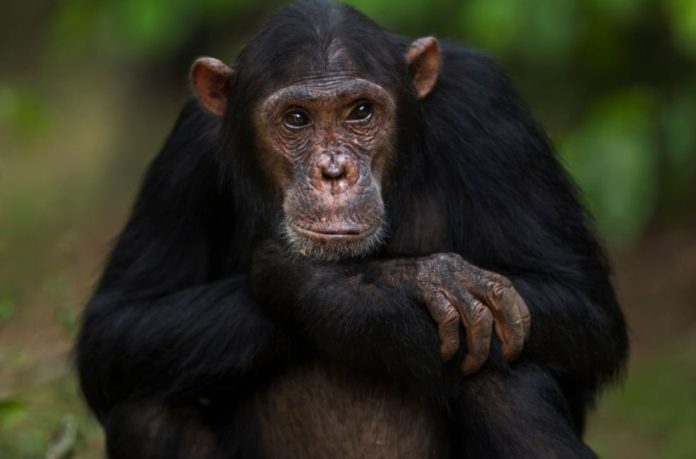Why we are more susceptible to cancer compared to other non-human primates? A new study published in the journal Cell reveals why humans are more exposed to cancer than other animals.
Cancer has been well-documented as a genetic illness leading to the activation of tumor-suppressor genes as well as oncogenes. On average, mutations or changes in three to five cancer genes are needed for a malignant tumor to spread.
To date, all known cancer driver genes are involved in three fundamental biological processes: cell fate, cell durability, and genome preservation. While this is true for all malignancies, various tissues can have distinct patterns in terms of tumors and genes targeted within these basic pathways.
Chimpanzees and humans share more than 98 percent of their genomic sequence. Since our split from the chimp-human last common ancestor, we’ve evolved in response to a variety of geographic, environmental, social, and behavioral changes.
According to new research, a small mutation in our DNA that occurred after we grew away from other primates has rendered us more susceptible to cancer.
Other primates have a lower incidence of cancer. For example, autopsies performed on 971 non-human primates that died at the Philadelphia Zoo in Pennsylvania between 1901 and 1932 revealed that only eight of the animals had tumors during that time period.
Christine Iacobuzio-Donahue of Memorial Sloan Kettering Cancer Center in New York and her colleagues examined hundreds of genes between humans and 12 non-human monkey species to figure out why we are more prone to cancer.
They discovered that after we parted from chimps, we had evolved a slightly altered version of a gene called BRCA2.
BRCA2 is called a “tumor suppressor gene” as it helps fix DNA. However, compared to other primate copies of the gene, a single DNA letter alteration in the human BRCA2 gene made it 20 percent worse at mending DNA, which could explain our higher cancer rates.
The findings contributes to our understanding of BRCA2’s role in human cancer. For example, we understand that people with BRCA2 gene variations that decrease the gene’s repair activity have an increased risk of cancer, notably breast and ovarian malignancies.
According to Iacobuzio-Donahue, “we don’t know why BRCA2 has evolved to become less active in humans than in other primates.” According to her, one theory is that lower BRCA2 activity has been selected for in humans to improve fertility because research reveals that women with cancer-linked BRCA2 mutations have an easier time getting pregnant.
If that’s the case, she adds, the increased fertility may have come at the expense of greater cancer rates.
Iacobuzio-Donahue says that the new finding that a single mutation in the BRCA2 gene could be a major cause of cancer in people could lead to new treatments.
Although human gene editing is a long way off, she claims that we might theoretically alter our BRCA2 gene to make it more resemble non-human chimpanzee variants that are linked to decreased cancer rates.
Image Credit: Getty
You were reading: Why Chimps Don’t Get Cancer and What That Means for Humans
